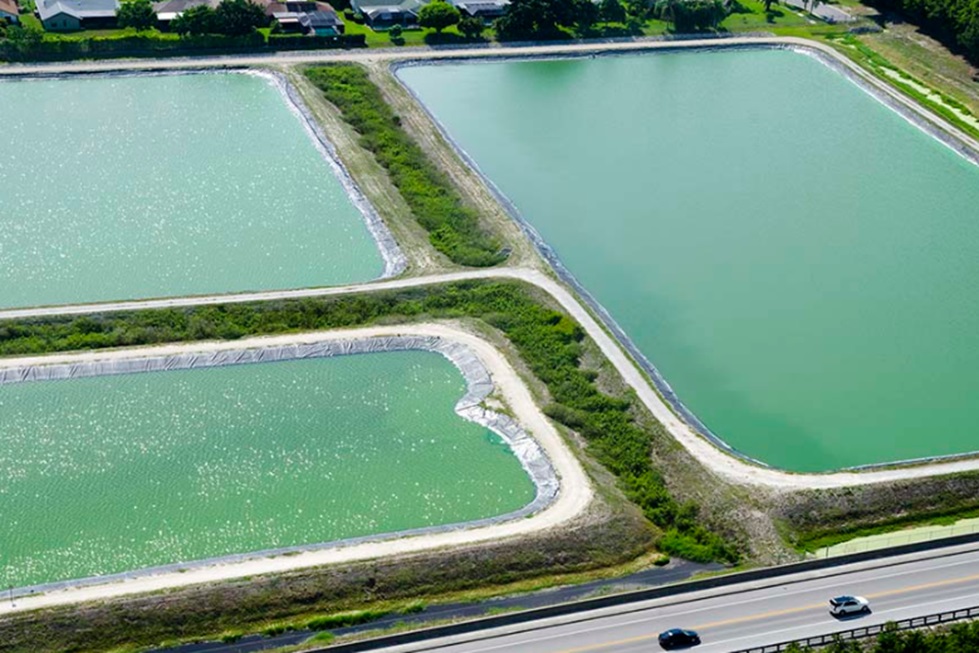In the world of waste management, various methods and technologies are used to handle and treat waste efficiently. One such method is the use of an effluent pond. While this might not be a term that everyone is familiar with, understanding the role and function of effluent can provide valuable insight into effective waste management practices.
The Concept of an Effluent Pond
This pond is a man-made body of water where effluent, or outflowing liquid waste, is stored and treated. These ponds are commonly used in various industries, including agriculture, mining, and manufacturing, to manage waste in a cost-effective and environmentally friendly manner.
These ponds work by holding the wastewater for a specific period, allowing natural processes to occur. The effluent undergoes biological, chemical, and physical changes, which help reduce the contaminants present in the water.
Functionality of Effluent Ponds
These ponds operate based on a simple yet effective principle: the separation of solid waste from liquid waste. The wastewater, also known as effluent, enters the pond, allowing suspended solids to settle at the bottom while the liquid portion remains on top. Over time, the solids undergo decomposition and breakdown, while the liquid undergoes biological and chemical processes to minimize their environmental impact.
The Role in Waste Management
These ponds play a crucial role in managing waste, particularly in industrial and agricultural settings. Here’s how:
- Wastewater Treatment
The primary role of a pond is to treat wastewater. By holding the water for an extended period, the pond allows for the natural breakdown of organic matter through microbial action. Additionally, any suspended particles in the water settle to the bottom of the pond, further aiding in the treatment process.
- Environmental Protection
These ponds help protect the environment by preventing untreated wastewater from being discharged directly into water bodies. This helps preserve the quality of our rivers, lakes, and oceans, protecting aquatic life and maintaining the health of our ecosystems.
- Resource Recovery
In many cases, the treated water from a pond can be reused, for example, in irrigation. This not only reduces the demand for fresh water but also helps recycle valuable nutrients present in the wastewater.
- Regulatory Compliance
These ponds can help industries comply with environmental regulations. By treating their wastewater effectively, businesses can meet discharge standards and avoid penalties associated with non-compliance.
Effluent Ponds in Industries
These ponds play a critical role in industries where wastewater is a byproduct of manufacturing processes. These ponds provide a cost-effective and environmentally friendly solution for managing industrial effluent. By implementing these ponds, industries can comply with regulatory standards, minimize their ecological footprint, and protect surrounding ecosystems.
Effluent Ponds in Agriculture
Agricultural practices, including livestock farming, often generate substantial amounts of wastewater containing organic matter and nutrients. Effluent in agricultural settings offer a practical method for handling this wastewater. By containing and treating the effluent, farmers can minimize the impact on local water resources, control nutrient runoff, and reduce the risk of water pollution.
Maintaining and Monitoring
To ensure the optimal functioning of ponds, regular maintenance and monitoring are essential. This includes inspections of liners for integrity, monitoring water quality parameters, and periodic removal of accumulated solids. Proper maintenance helps extend the lifespan of the pond, enhances its performance, and ensures compliance with environmental regulations.
Conclusion: The Value of Effluent Ponds in Waste Management
This pond plays a significant role in waste management. Through its function in treating wastewater, protecting the environment, enabling resource recovery, and aiding regulatory compliance, a pond proves to be a valuable asset in the realm of waste management.
While not all waste can be treated in a pond, for certain types of wastewater, it provides an effective, economical, and environmentally friendly solution. By understanding the role and function of a pond, we can appreciate its value and contribution to sustainable waste management practices.
So, the next time you hear the term ‘effluent pond,’ remember the critical role it plays in preserving our environment and making our industries more sustainable. It’s just one piece of the puzzle in the complex world of waste management, but it’s a crucial one that deserves recognition and understanding.

